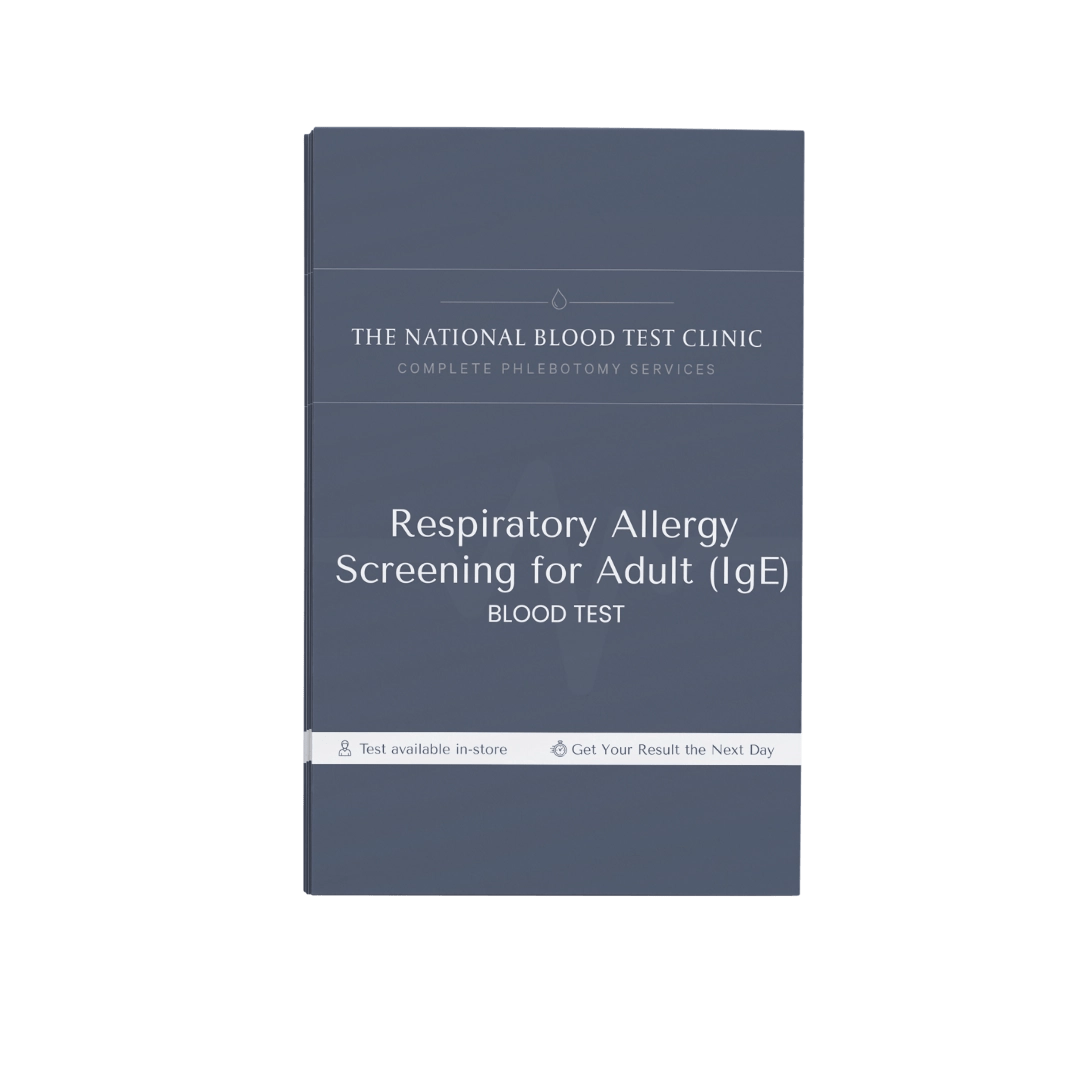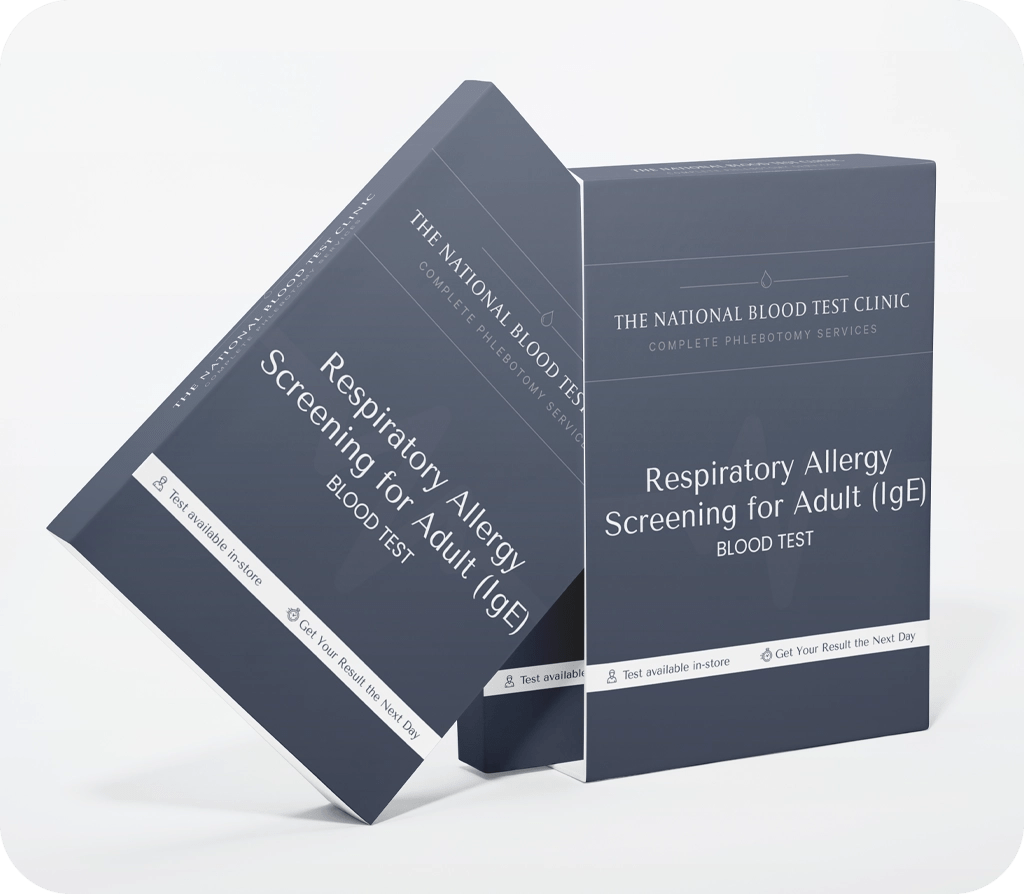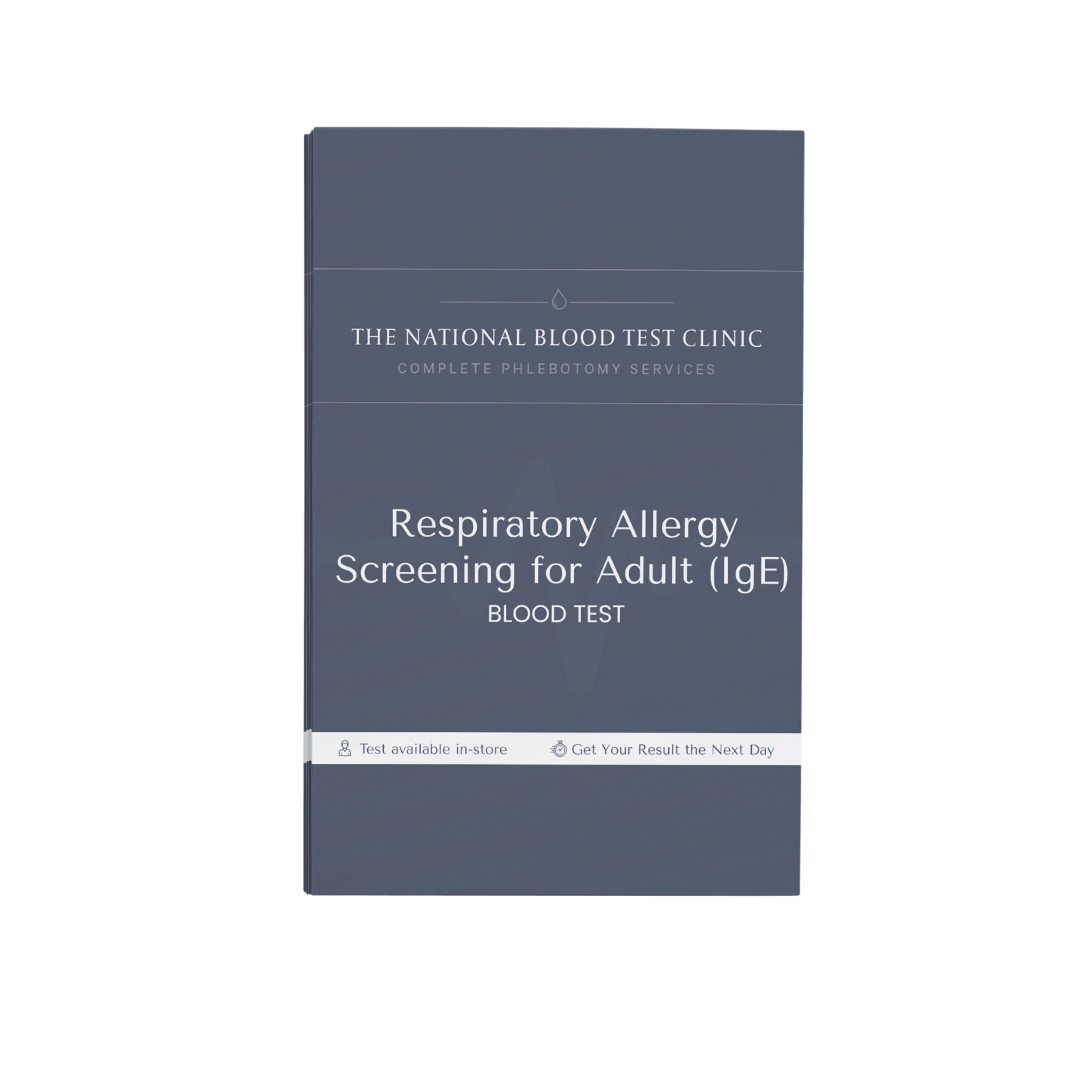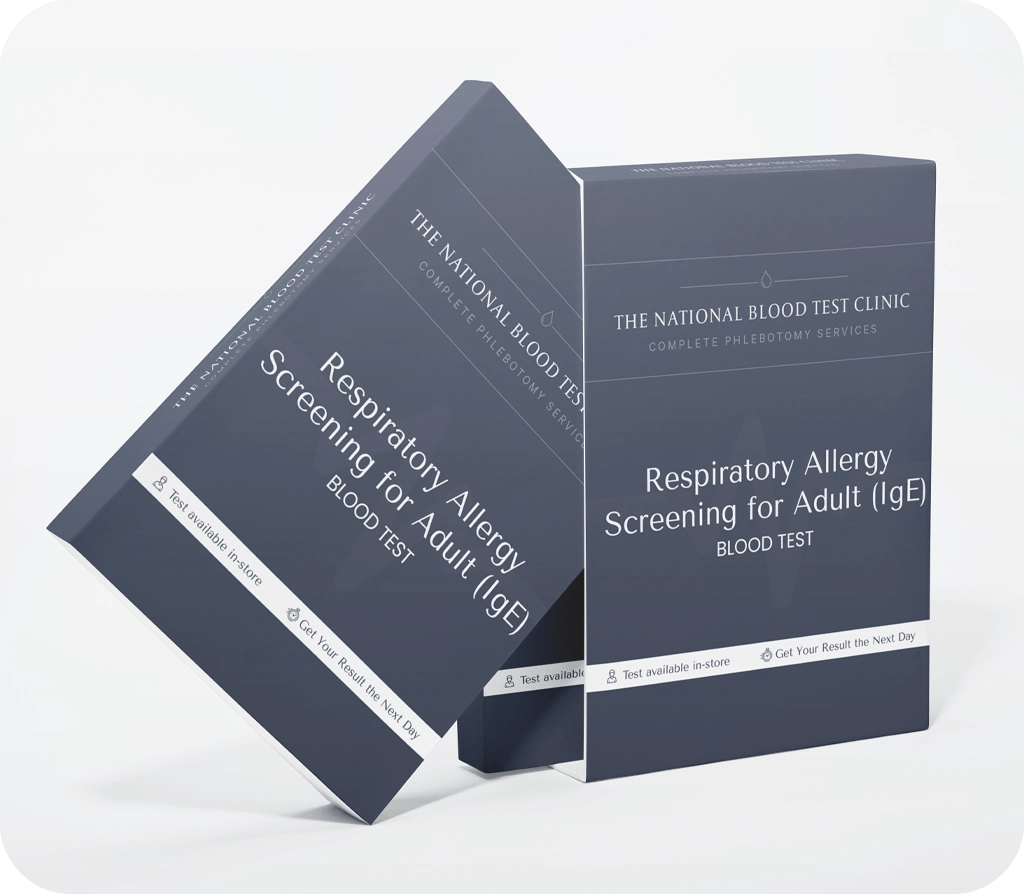My Store
Respiratory Allergy Screening for Adult (IgE)
Respiratory Allergy Screening for Adult (IgE)
SKU:ALL6
Persistent sneezing, nasal congestion, itchy eyes, wheezing, or breathing issues in adults may signal respiratory allergies. The Adult Respiratory Allergy Panel (IgE) screens for common airborne allergens such as dust mites, moulds, pet dander, and pollen, helping to identify triggers and support effective allergy management.
Why Needs Respiratory Allergy Screening (IgE) in Adults?
Respiratory allergies can significantly impact quality of life, causing chronic discomfort and increasing the risk of asthma or respiratory complications. By pinpointing specific allergens, this test allows for personalised treatment, avoidance strategies, and lifestyle adjustments, reducing long-term symptoms and improving daily wellbeing.
What Gets Assessed?
- D. pteronyssinus (dust mite)
- D. farinae (dust mite)
- Aspergillus fumigatus (mould)
- Alternaria alternata (mould)
- Dog (skin flakes)
- Cat (skin flakes)
- Common silver birch (pollen)
- Timothy (pollen)
- Plantain (pollen)
Turnaround Time
- 7 Days
100 in stock
Visit a partner clinic (+£50)
Once you've ordered your test, look out for an email from our phlebotomy partners containing information and a link to book your appointment. We'll send you everything the clinic will need to complete the sample and post it back to our labs.
Organise a nurse yourself
If none of the above options work for you, you can arrange your own medical professional to collect your sample. There is no additional charge for this. Once you've ordered your test, we'll send you everything you and your chosen medical professional will need to collect a sample and post it back to our labs.
Couldn't load pickup availability
Enter Your Details


Visit a partner clinic (+£50)
Once you've ordered your test, look out for an email from our phlebotomy partners containing information and a link to book your appointment. We'll send you everything the clinic will need to complete the sample and post it back to our labs.
Organise a Nurse Yourself
If none of the above options work for you, you can arrange your own medical professional to collect your sample. There is no additional charge for this. Once you've ordered your test, we'll send you everything you and your chosen medical professional will need to collect a sample and post it back to our labs.
How Our Test Works
-

Place Your Order
Place your order online and receive a test kit delivered to your home. You’ll need to bring this kit with you to your scheduled appointment at one of our partner blood collection clinics.
-

Attend Your Appointment
At your chosen clinic, a trained nurse or phlebotomist will collect your blood sample using the kit you bring. If a sample collection courier is not available at the site, you’ll be asked to take the sealed sample with you and post it using the prepaid packaging provided.
-

Receive Your Results
Once your results are ready, you’ll receive an email notification to log in and view them securely via your private portal. Please note: venous blood test results are not automatically reviewed by a doctor. We recommend booking a consultation with a qualified clinician to help you interpret and understand your results fully.
FAQs
Who should consider this test?
Adults with frequent sneezing, nasal congestion, itchy or watery eyes, wheezing, shortness of breath, or suspected asthma triggered by allergies should consider this test. It helps identify environmental and inhalant allergens affecting respiratory health.
How is the test performed?
A blood sample is taken to measure IgE antibody levels against common airborne allergens such as pollen, moulds, pet dander, and dust mites.
Does this test include food allergies?
No, the Adult Respiratory Allergy Panel only covers inhalant allergens. For dietary triggers, an Adult Food Allergy Panel (IgE) would be more suitable.
What information do the results provide?
Results show the IgE reactivity level for each allergen tested, indicating whether you have mild, moderate, or strong allergic sensitisation.
What should I do if the test shows allergies?
If allergies are detected, your doctor may recommend allergen avoidance, antihistamines, inhalers, or other personalised treatments to better control your respiratory symptoms.
Subscribe to our emails
Be the first to know about new collections and exclusive offers.





